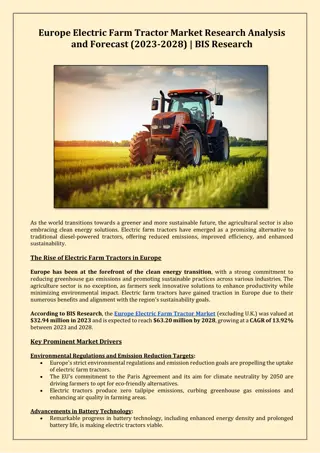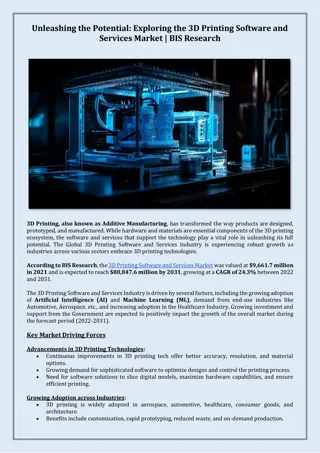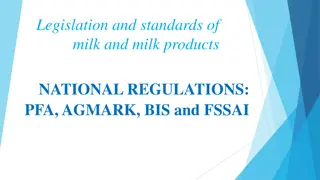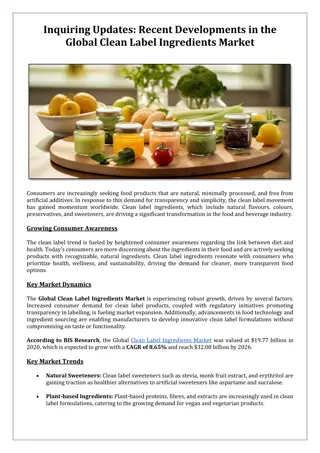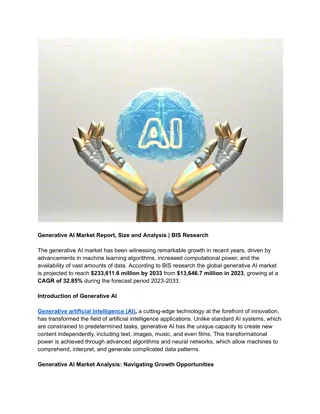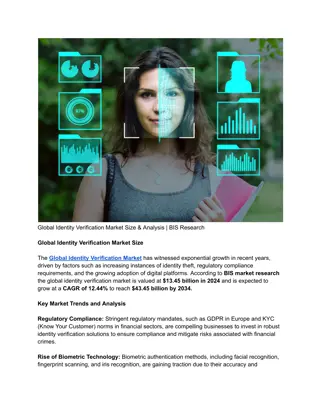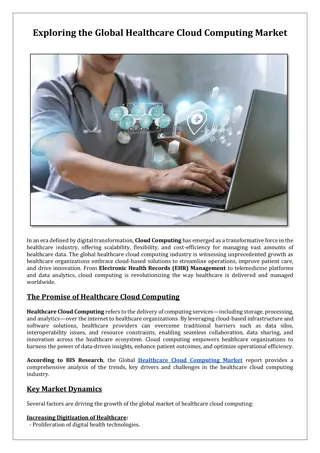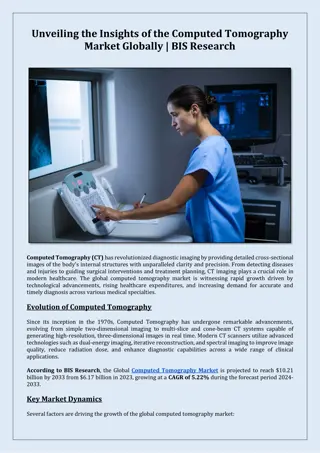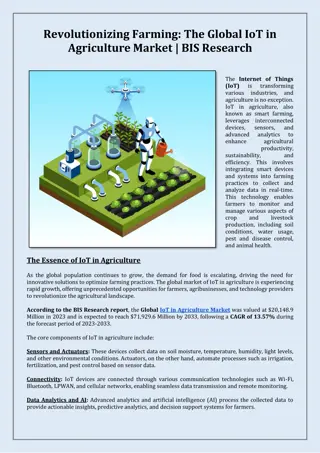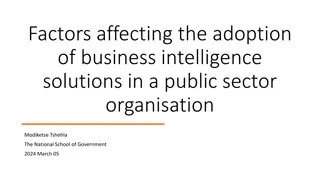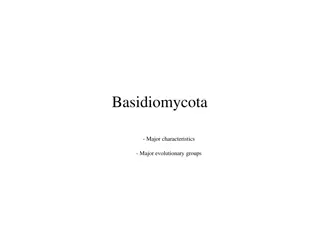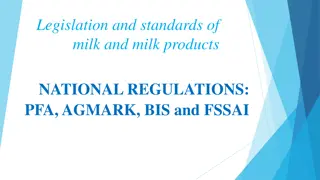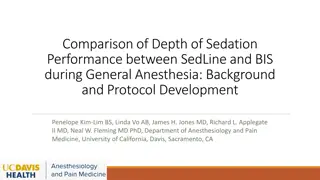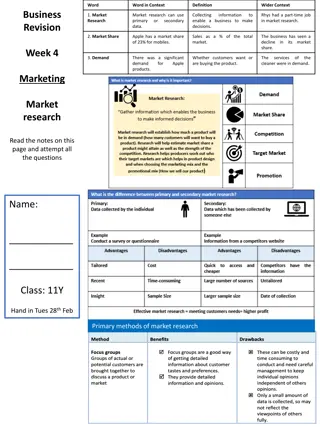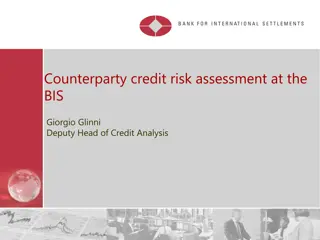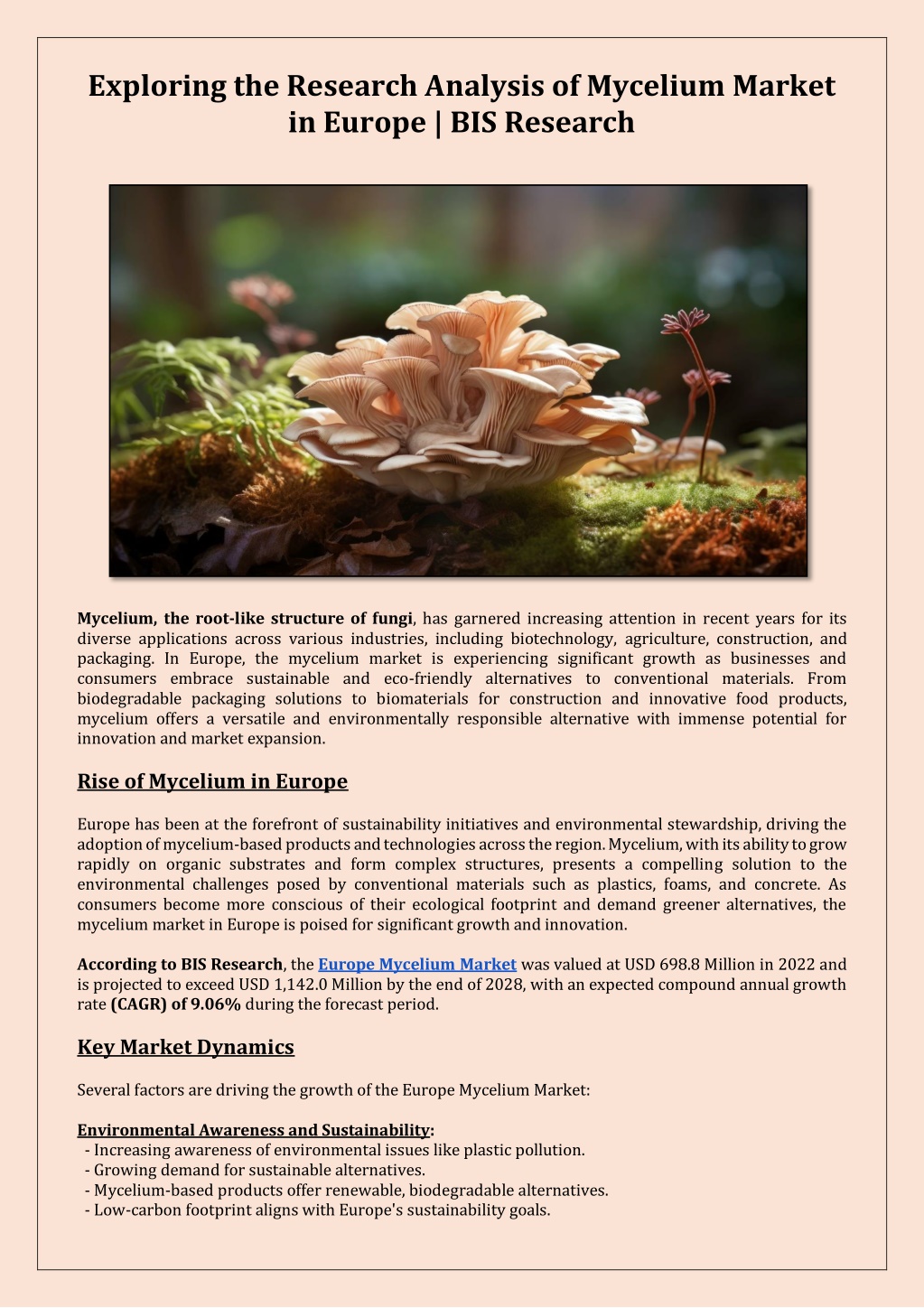
Exploring the Research Analysis of Mycelium Market in Europe | BIS Research
According to BIS Research, the Europe Mycelium Market was valued at USD 698.8 Million in 2022 and is projected to exceed USD 1,142.0 Million by the end of 2028, with an expected compound annual growth rate (CAGR) of 9.06% during the forecast period.
Uploaded on | 3 Views
Download Presentation

Please find below an Image/Link to download the presentation.
The content on the website is provided AS IS for your information and personal use only. It may not be sold, licensed, or shared on other websites without obtaining consent from the author. Download presentation by click this link. If you encounter any issues during the download, it is possible that the publisher has removed the file from their server.
E N D
Presentation Transcript
Exploring the Research Analysis of Mycelium Market in Europe | BIS Research Mycelium, the root-like structure of fungi, has garnered increasing attention in recent years for its diverse applications across various industries, including biotechnology, agriculture, construction, and packaging. In Europe, the mycelium market is experiencing significant growth as businesses and consumers embrace sustainable and eco-friendly alternatives to conventional materials. From biodegradable packaging solutions to biomaterials for construction and innovative food products, mycelium offers a versatile and environmentally responsible alternative with immense potential for innovation and market expansion. Rise of Mycelium in Europe Europe has been at the forefront of sustainability initiatives and environmental stewardship, driving the adoption of mycelium-based products and technologies across the region. Mycelium, with its ability to grow rapidly on organic substrates and form complex structures, presents a compelling solution to the environmental challenges posed by conventional materials such as plastics, foams, and concrete. As consumers become more conscious of their ecological footprint and demand greener alternatives, the mycelium market in Europe is poised for significant growth and innovation. According to BIS Research, the Europe Mycelium Market was valued at USD 698.8 Million in 2022 and is projected to exceed USD 1,142.0 Million by the end of 2028, with an expected compound annual growth rate (CAGR) of 9.06% during the forecast period. Key Market Dynamics Several factors are driving the growth of the Europe Mycelium Market: Environmental Awareness and Sustainability: - Increasing awareness of environmental issues like plastic pollution. - Growing demand for sustainable alternatives. - Mycelium-based products offer renewable, biodegradable alternatives. - Low-carbon footprint aligns with Europe's sustainability goals.
Technological Advancements and Research Initiatives: - Advances in biotechnology, genetic engineering, and fermentation. - Expand capabilities of mycelium-based materials. - Enable production of high-performance biomaterials. - Tailored properties drive R&D investments across industries. Regulatory Support and Policy Initiatives: - EU regulations aim to reduce plastic waste and promote sustainability. - Favourable regulatory environment for mycelium-based products. - EU Green Deal and Circular Economy Action Plan provide incentives. - Funding opportunities for businesses to develop and scale up solutions. Action Required: Download FREE Sample PDF report on Europe Mycelium Market Research. Europe Mycelium Market Segmentation Segmentation by Packaging Materials: a. Mycelium-based packaging foam: - Biodegradable alternative to polystyrene foam. - Used for protective packaging and insulation. b. Mycelium-based packaging materials: - Sustainable substitutes for single-use plastics. - Used in food, pharmaceutical, and consumer goods packaging. Segmentation by Biomaterials and Construction: a. Mycelium-based composites: - Structural materials for building construction. - Offer lightweight, durable, and eco-friendly alternatives. b. Mycelium-based textiles: - Sustainable fabrics produced from mycelium fibres. - Used in apparel, upholstery, and fashion accessories. Segmentation by Food and Beverages: a. Mycelium-based meat substitutes: - Plant-based alternatives made from mycelium-derived proteins. - Provide sustainable and protein-rich options. b. Mycelium-based functional foods: - Nutrient-rich products fortified with mycelium extracts. - Offer health benefits like immune support and digestive health. Future Challenges and Opportunities While the mycelium market in Europe presents significant opportunities for growth and innovation, challenges such as scalability, cost competitiveness, and FoodTech market acceptance remain. However, ongoing advancements in production techniques, supply chain optimization, and consumer education offer opportunities to overcome these challenges and drive market expansion. By leveraging Europe's strong research infrastructure, regulatory framework, and commitment to sustainability, businesses can unlock the full potential of mycelium-based products and contribute to a more sustainable and resilient future. Conclusion The Europe Mycelium Industry represents a transformative shift towards sustainable and eco-friendly solutions across industries. As businesses and consumers seek alternatives to conventional materials that mitigate environmental impact and promote circularity, mycelium-based products offer a compelling solution with diverse applications and benefits. By fostering innovation, collaboration, and regulatory support, Europe can lead the way in harnessing the potential of mycelium to address global challenges and create a more sustainable and prosperous future for generations to come.



